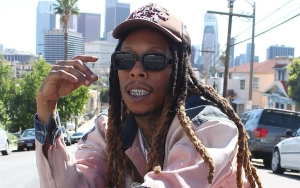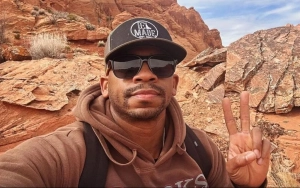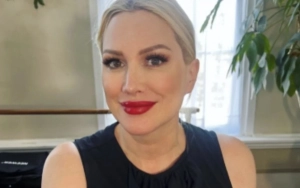
The show brings out the humanity left in Walter White and highlights 'the significance of [Walt and Jesse's] relationship' in the last episode.
- Sep 30, 2013
AceShowbiz - Fans who were tuning into the "Breaking Bad" finale on Sunday night, September 29 may not be disappointed with the ending, especially with the direction taken for Walter White. The antihero [SPOILER ALERT!] indeed was killed in the farewell episode, but he got his chance to redeem himself.
As he saw the condition of Jesse who had been tortured, Walt who initially planned to wipe his former student out suddenly had a change of heart and saved him instead. He even let Jesse shoot him but Jesse refused to do so, and Walt later took a bullet for Jesse.
For Bryan Cranston, it's a "very satisfying" and "unapologetic" ending for his character, adding that "it's fitting. It's complete" since it gave an appropriate reunion and send-off for his character and Aaron Paul's.
"When I see Jesse, this involuntary sense comes over me," Cranston tells EW.com, explaining what led Walt to save Jesse. "He's been treated like a dog - like a beaten dog - and it just shocks me, and impulsively I protect him. He's going off into the sunset. It's fitting that the man who was so put upon and mistreated has a chance. And I like how it ends, because it's not like, 'Oh, he's got the money.' No. He's just got his life, so he has a chance - just a chance."
He continues, "[When] he hears that the blue meth is still out there, that Jesse is still cooking, it's like, 'That bastard! He convinced them to be a partner with him, he's still cooking! I'll kill everybody!' And then when I see him, the shred of humanity left in Walter White is exposed at that moment and he acts. So if there's any redeeming quality to him from the standpoint of the audience, it's that moment."
"He even allows Jesse to kill him. Jesse has the gun and he points at me, and he says, 'You want this?' And I go, 'Yeah. I think it's fitting. Go ahead. You need to do it, go ahead. It's okay.' And then he says, 'If you want this, then do it yourself. I'm not going to do it for you.' At least there was some conclusion to their association. Their friendship did matter. And it was because of that history and friendship, that was the basis of his impulsivity."
Calling it "so true," Cranston says, "Sometimes you don't know the depth of what you feel until you're tested. That's why I think it's a satisfying ending. It's still true to Walter White. Because he always possessed that. But it's not saccharine sweet." Although he once thought having Walt's family die would be a proper ending for his character, "ultimately, I think this is the best ending. A real satisfying ending. And I'm so grateful for that."
Paul also thinks the series finale is "100 percent satisfying." He reasons, "I love that toward the end, Walt's there to go on a suicide mission and blow everyone up, including Jesse, but he sees what they have put him through... There's not a soul in him anymore, and [Walt] decides that he deserves a second chance, so he dives on him. He throws himself in front a bullet for him - and it's kind of beautiful. It's good that Walt got his, because he's an evil, evil man, and he needed to go."
Of Jesse refusing to shoot Walt, Paul says, "I always had the vision of Jesse pointing a gun to Walt's head, I really did. I'm like, 'It's got to end like this,' and deep down, I wanted Jesse to kill Walt. But the closer we got to the end, I realized I didn't want that. Jesse can't kill anybody else - even though he ended up killing Todd."
He goes on justifying Jesse killing Todd, "That was really self-defense and he just had to get out of there." The two-time Emmy winner also thinks putting Jesse through the torture was "good" for his character, "because Jesse's not an innocent person. He did some very bad things. It's good that Jesse was put through that so he did some time, but I believe that he deserved to get away from all of it and just leave. You don't really know where he goes."
With such tragic storyline, Cranston believes "Breaking Bad" is "a tragedy of almost Shakespearean level." He explains, "Tragedy is not a bunch of bad guys doing bad things: 'Oh, they killed the good guys!' Tragedy is when the bad guys are sympathized, when you realize that it could have gone another way... In its truest sense, our story is a tragedy - an American tragedy. It's not 'good conquers evil,' it's not 'good guys against the bad guys,' it's much muddier than that. Shades of gray."









